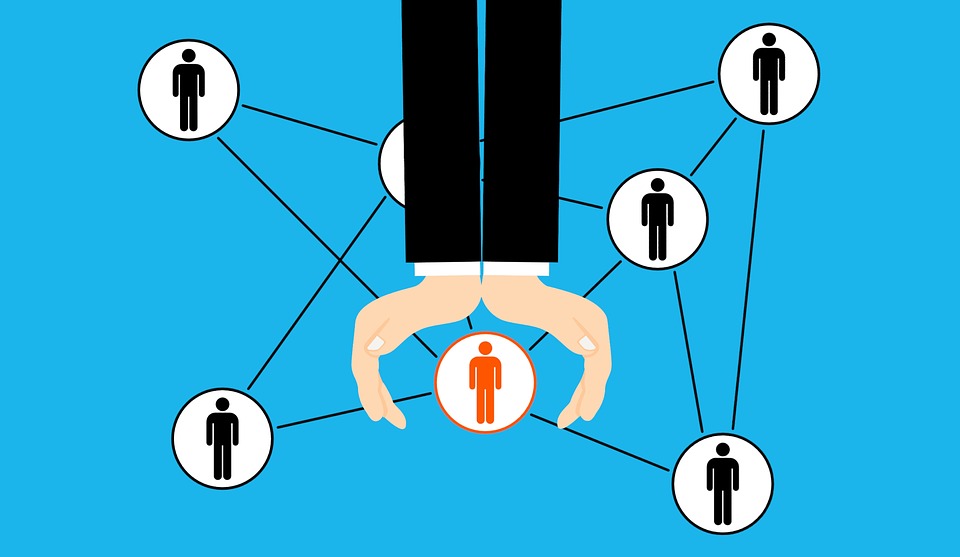The majority of us millennials have heard of life insurance, but the majority of us have never given it much thought. First, let’s talk about life insurance. Even though it’s a common topic of conversation, especially with older people like our parents, many people don’t know what it is or why they would ever need it.

What life insurance is, why we should get it even as millennials, and how to opt-in will be discussed in detail in this article. We disclaim that we neither sell nor are licensed to sell life insurance. We just want to make people aware of it in the hopes of educating more millennials about the importance of purchasing life insurance to protect their families in the event of an unfortunate event.
We each have disability insurance in addition to life insurance. In a subsequent article, we will discuss disability insurance in greater detail and its significance.
Our personal history (and the reason we carry life insurance)
It hasn’t always been there. I recently switched jobs to work for one of the largest insurance companies in the world. As part of my package, I was able to choose from a variety of benefits, including life and disability insurance, as well as additional insurance beyond what my employer was willing to pay us.

I decided to select the maximum amount for each category after seeing how cheap it was. Clearly, I do not intend to die today, tomorrow, or anytime soon. Additionally, I do not intend to be so ill that I will require additional paid sick time. You never know, though. As a result, in the event that one of us experiences something terrible, we are paying somewhere around $50 per month for an incredible amount of coverage.
In the above context, supplemental insurance simply refers to additional insurance beyond what is provided.
It’s great for us because it lets us rest easier at night knowing that the other is financially well taken care of in the event of a crisis.
Life insurance: what is it?
A life insurance policy is an insurance policy you buy for yourself that protects your family in the event of your untimely death.
Why is it referred to as “life insurance”?
Contrary to what the term might imply, life insurance does not cover your death. It does not in any way guarantee your survival or immortality. Some may find this to be obvious, but it needs to be said to be clear.
However, life insurance ensures that your loved ones will not suffer financial consequences if you pass away suddenly. that your children will continue to be able to attend college and that your spouse will continue to be able to pay their mortgage because you are no longer alive to cover your share of the payments or bills. Therefore, it is essential to sit down first and determine how much money you will need to pay off all of your debts and maintain your survivors’ standard of living if you were to pass away. Divide that monthly sum by 12, and then divide it by 20.
One method for determining how much life insurance you may need: If you are between the ages of 25 and 35 and want to find out how much it costs to buy life insurance, follow these steps:

All-out Obligation: Determine how much debt you currently have in total.
Costs Every Month: Determine how much you contribute to paying bills and other family costs.
Multiple: As a general rule, we chose a multiple of 20.
Expenses Each Year: To determine your annual expenses, multiply your monthly expenses by 12.
Final Cost of Insurance: Step 3: Take the annual expenses and divide them by 20.
The amount you should aim to have declared as the payout amount on your policy is known as your “Final Insurance Amount.” Therefore, in the event of your early death today, that sum should be distributed to your family to provide for them.
How much does life insurance cost?
On the table, hands with a silhouette cut out of paper. concept of family care.
No, it’s not that expensive. For a benefit payment of more than $100,000, the monthly cost can be as low as $8 to $10.
Who will receive my life insurance payouts?
One of the most selfless things you can ever do is buy life insurance. As you can see from the preceding explanation, it does not in any way benefit you personally. The people around you benefit from it.
So, who will receive my life insurance payout? Beneficiaries receive the proceeds from your life insurance policy. Set forth plainly, a recipient is an extravagant term insurance agency use while discussing that unique individual or individuals that you abandon after you bite the dust.
For instance, unless certain conditions were met to prevent your spouse from being that special person who receives the “beneficial interests,” your husband or wife (spouse) typically serves as your immediate beneficiary. I put valuable interests in statements since dislike that any measure of cash is sufficient to pay for the passing of somebody you profoundly care about. Unfortunately, however, insurance professionals refer to it as that.

Definition: In this instance, the term “beneficial interest” refers to the right to benefit from or collect payments from an account or policy payout from a deceased person.
Your mother, father, brother, sister, and so on are additional examples of beneficiaries if you are not married. Basically, anyone you think would use the money from the policy pays to help those you care about financially and who you think are most important to you.
Whether it’s to help a son, daughter, or niece attend college in the future or just to cover funeral expenses, or to make sure your parents are taken care of when they are old enough to need to live in a nursing home and you are unable to be there for them.
Should I still purchase life insurance if the people I care about do not require financial assistance?
Yes, you should purchase the bare minimum of life insurance to cover your burial expenses and any potential debts you may leave behind. Even if your kin is well-off, you shouldn’t force them to use their personal savings to pay for your credit card, mortgage, and funeral expenses when those costs and debts could fall on them. If you were aware that you could prevent it from happening, would that be the right thing to do?
Definition: The term “next of kin” typically refers to your closest living blood relative. could be your brother, sister, cousin, or your mother. Due to the true meaning of the term, “next of kin” does not typically refer to your spouse. However, we will not discuss the circumstances under which they may be included as “next of kin.”
Life can be extremely unpredictable, and until we hear of someone whose family was saved from possible homelessness, hardship, or other terrible outcomes because of life insurance, we rarely consider purchasing it. Or when it’s too late and if we’d known what would happen in the future, we might have planned to get it.
Don’t wait until you can’t get life insurance until it’s too late. Sadly, unlike other things in life, life insurance can only be purchased once when you really need it. Your opportunity to safeguard and provide for your family also vanishes when you pass away.
Asian young family playing housing happily, with mother, father, and children in the new home’s living room. Stable housing concept, a new family. A gentle focus on the children’s center.
The most frequently asked questions about life insurance are listed below, along with our responses to each one. We want to ensure that you completely comprehend extra security and why we think it is a wise venture to make:
Is life insurance a good idea, and is it worth purchasing it?
Absolutely! It is without a doubt a very cost-effective concept. With a benefit payment of more than $100,000, it may cost as little as two cups of coffee from Starbucks as a monthly payment. What makes that not worthwhile?
Is life insurance really necessary for me?
Assuming that you are as yet posing this inquiry, you want to return and yet again read this article and read the inquiry and replies underneath!
What kinds of life insurance are available?
Term Life Insurance for a set amount of time; Whole Life Insurance for lifetime protection; Universal Life Insurance with flexible premiums and optional guarantees; Variable Universal Life Insurance with investment options. MassMutual When should I start buying life insurance?
Life insurance should be purchased as soon as possible. It is extremely difficult to not be able to afford life insurance coverage that will pay out more than $100,000 upon your death for as little as $8 per month.
How do I purchase life insurance?
from a life insurance provider with good credit. Below is a list of some well-known life insurance companies.
When should you stop buying life insurance?
It always pays off. You never know what life has in store for you. You could be the richest man in the world today, be worthless tomorrow, and be hit by a car. Life is full of surprises. It is never too late to protect your health by purchasing insurance for yourself and your family!
How do I go about purchasing life insurance?
Log on to a computer, search for “life insurance,” select one of the highly rated insurance companies, complete the questionnaires and forms, and then submit the form. All things considered, is finished, you will be paying a regularly scheduled installment in view of the advantage sum you picked. The amount you want to be paid out upon your death is known as a benefit amount.
Do I need to work with a broker to buy life insurance?

No. You can now purchase life insurance from the convenience of your own home in the digital age. Numerous insurance companies have adopted digital practices. You can find a list of potential insurance companies from which you can purchase affordable life insurance by simply searching for “life insurance policies.”
Choose insurance companies that have good ratings from Moody’s, S&P, or Fitch and are well-known. Don’t buy from the company if you haven’t heard of them before. A list of trustworthy businesses can be found below. We disclaim any and all liability for the choices you make. Before making a decision about an investment, always conduct your own research. This includes selecting a dependable life insurance provider.
Which of the best and most reputable life insurance providers do you know of?
Note: Haven Life, Liberty Mutual, MassMutual, Prudential, AIG, Northwestern Mutual, MetLife, and Transamerica The list above is not ranked by financial strength.
Can multiple people be my beneficiaries?
Yes, typically as a benefactor, you can select the percentage that goes to each beneficiary and name multiple beneficiaries.
Is life insurance fraudulent? If my monthly payments are so insignificant in comparison to the amount that my policy pays out, how do insurance companies make money?
Life insurance is not a scam, not at all. Life expectancy and the law of large numbers help insurance companies make money. Because an insurance company is aware that, on average, no two people in their pool will pass away at the same time, they will never have to pay out hundreds of thousands of dollars all at once.
Additionally, they are aware that the typical American lives to be 80 years old. In general, life expectancy refers to the expected age at which you will die. Therefore, a life insurance provider doesn’t anticipate that a 30-year-old today will require benefit payments until fifty years from now.

That holds true on average. In fact, some people will pay for life insurance even after they reach the age of 80. Others chose not to renew the policy or ended up getting rid of it for no reason at all. Because they would not have had to pay beneficiaries, the life insurance company would have been able to profit from that policy in this instance.
However, you cannot be thinking like the insurance company when you buy life insurance on your own. By purchasing life insurance, you are essentially betting that you will either live to be 80 or die early. By not purchasing life insurance, you are effectively stating that you are absolutely certain that you will live to at least age 80.
Now, it’s great to be optimistic like that, but it’s foolish to think that you can’t possibly get into an accident that could end your life too soon. Purchasing extra security is perhaps the most adult thing one can at any point do. It’s a dark topic, but it’s one that needs to be discussed, especially when you’re just starting out in your career.
What is a donor?
You might have already heard this term. The owner of the life insurance policy is the beneficiary under the terms of the policy. Therefore, you are the beneficiary if you purchase a life insurance policy for yourself. The beneficiary is the individual who will receive policy payments upon your death.
What is a policy of insurance?
A contract for an insurance policy is made between the insured, also known as the beneficiary, and the insurance company, also known as the insurer. During the contract’s term, the insurance policy’s beneficiary (contract) will receive a payment.
What is a contract’s term?

When it comes to life insurance, the duration for which the insured is covered is specified in the contract. Your beneficiary will not receive payments after your early death if your contract expires and you do not renew it.
In order for your beneficiary to receive payments during the contract’s term, you must be covered and contribute to your insurance.


